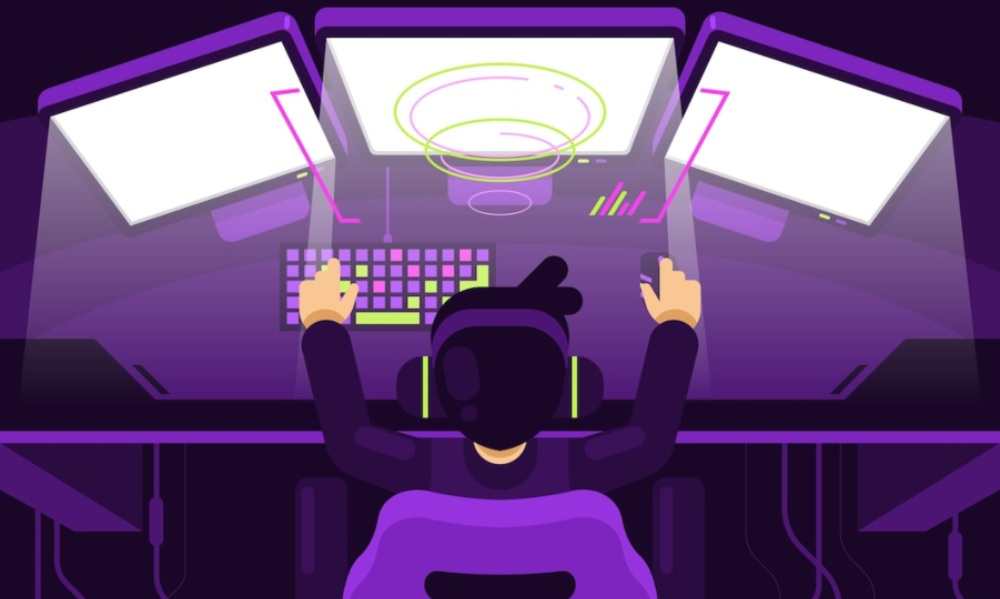How Video Games Are Made in 2025: The Game Dev Process
Explore the future of game development in 2025. This article examines how AI, cloud computing, and other technologies are transforming the game dev process, from concept to release.

Game development services are constantly evolving, driven by technological advancements and changing player expectations. By 2025, the game development process will have undergone significant transformations, integrating new tools and methodologies. This article explores how video games are likely made in 2025, outlining the key stages of the game dev process.
The Evolving Landscape of Game Development
The gaming industry is dynamic. New technologies like AI, cloud gaming, and advanced rendering techniques are reshaping how games are created and experienced. These advancements impact every stage of the game development process.
The global video game market is projected to continue its growth trajectory, with mobile gaming, cloud gaming, and esports being significant drivers. This growth fuels demand for efficient and innovative game development services.
The Game Development Process in 2025
While the core stages remain, the methods and tools used will be significantly different:
1. Concept and Pre-Production
-
Enhanced Brainstorming Tools: Collaborative virtual whiteboards and AI-powered idea generators will aid in brainstorming and concept development.
-
Detailed Documentation: Comprehensive documentation will be created using collaborative cloud-based platforms, ensuring clear communication across teams.
-
Early Prototyping in VR/AR: Virtual and augmented reality will be used for early prototyping, allowing designers to experience game mechanics in immersive environments.
2. Design
-
AI-Assisted Level Design: AI tools will generate initial level layouts, which designers will then refine and customize.
-
Procedural Content Generation (PCG): PCG will be used to create vast and diverse game worlds with minimal manual effort.
-
Advanced Game Design Tools: Specialized software will offer sophisticated tools for balancing gameplay, designing economies, and creating complex game mechanics.
3. Production
-
AI-Powered Asset Creation: AI will generate high-quality 3D models, textures, animations, and sound effects, significantly speeding up asset production.
-
Cloud-Based Development Environments: Teams will collaborate seamlessly in cloud-based development environments, enabling remote work and efficient asset sharing.
-
Automated Testing and Quality Assurance: AI-powered testing tools will automate testing processes, identifying bugs and performance issues early on. Game development services will leverage these tools extensively.
4. Programming
-
Advanced AI Coding Assistants: AI coding tools will assist programmers in writing code, suggesting improvements, and automatically detecting errors.
-
Visual Scripting Enhancements: Visual scripting tools will become more powerful and flexible, allowing designers and artists to contribute more directly to game logic.
-
Cross-Platform Development Tools: Tools will streamline the process of developing games for multiple platforms simultaneously.
5. Art and Animation
-
AI-Generated Textures and Materials: AI will create realistic and stylized textures and materials, allowing artists to focus on higher-level creative tasks.
-
Motion Capture and AI-Driven Animation: Motion capture will be combined with AI-powered animation tools to create realistic and dynamic character animations.
-
Real-time Ray Tracing and Path Tracing: Advanced rendering techniques will create stunning visuals with realistic lighting and reflections.
6. Sound Design and Music
-
Procedural Sound Generation: AI will generate sound effects and music that dynamically adapt to the game environment.
-
Adaptive Music Systems: Music will adapt to player actions and game events, creating a more immersive experience.
7. Testing and Quality Assurance (QA)
-
AI-Driven Automated Testing: AI will automate various testing processes, including gameplay testing, performance testing, and bug detection.
-
User Feedback Analysis: AI will analyze player feedback from playtests and online forums to identify areas for improvement.
8. Release and Post-Production
-
Cloud-Based Game Distribution: Cloud platforms will streamline game distribution and updates.
-
Live Game Operations and Analytics: Data analytics tools will provide insights into player behavior, allowing developers to optimize the game post-release. Game development services will use these tools to provide ongoing support.
The Rise of Indie Game Development with AI
AI tools will empower indie developers more than ever. Solo developers or small teams can leverage AI for asset creation, level design, and even basic programming, drastically reducing development time and costs. This democratization of game development will likely lead to a surge in unique and innovative indie titles.
The Importance of Collaboration in a Distributed World
Cloud-based development environments will become the standard, enabling seamless collaboration among geographically dispersed teams. Real-time asset sharing, integrated communication tools, and streamlined version control will be essential for efficient teamwork in a globalized industry.
Player-Generated Content and Modding
Tools will become more accessible for players to create and share their own content, including levels, mods, and even game assets. AI could assist in this process, helping players generate content that fits the game's style and mechanics. This will extend the lifespan of games and foster vibrant communities.
The Focus on Accessibility and Inclusivity
Game development tools will increasingly prioritize accessibility, making it easier for people with disabilities to both create and play games. This includes features like customizable controls, improved visual and audio options, and tools for creating accessible game design.
The Role of Game Development Services
Game development services will play a crucial role in helping studios and publishers leverage these new technologies. They will provide expertise in AI integration, cloud development, and other advanced techniques.
Conclusion
By 2025, the game development process will be significantly different from what it is today. AI, cloud computing, and other advancements will streamline workflows, enhance creativity, and enable the creation of more immersive and engaging gaming experiences. While the core stages of game development will remain, the tools and methodologies used will continue to evolve, making the process faster, more efficient, and more accessible. Game development services will be essential partners for studios navigating this changing landscape.
Also Read: Develop a Game Like World of Warcraft
What's Your Reaction?



















